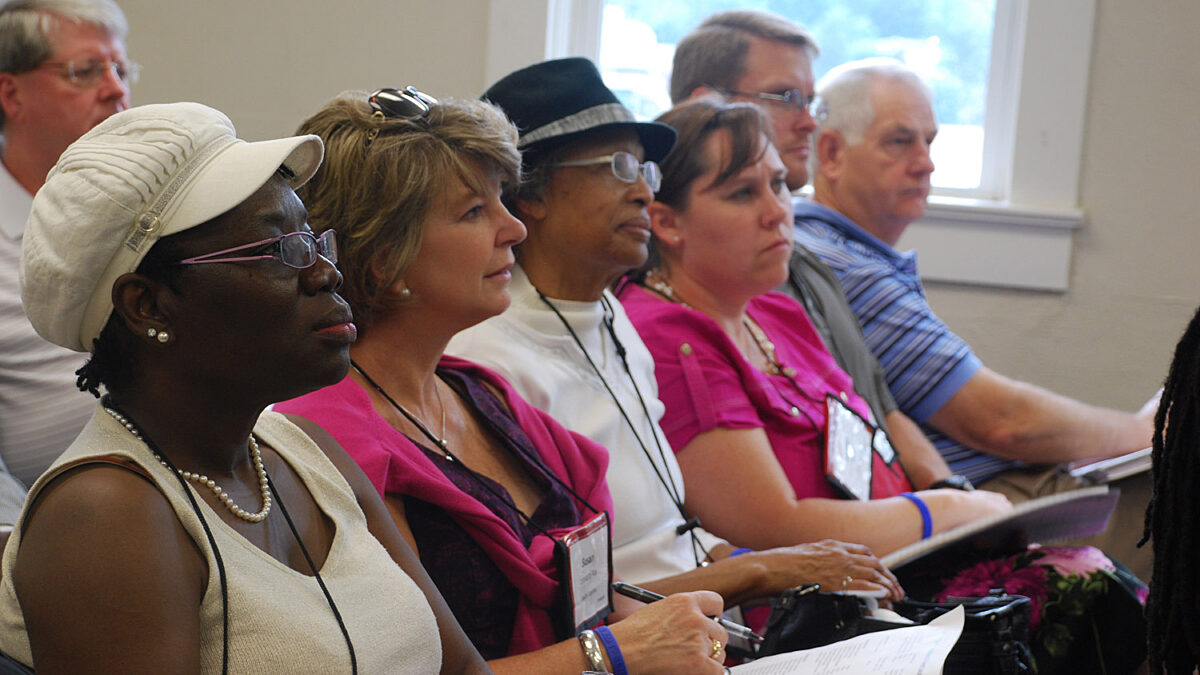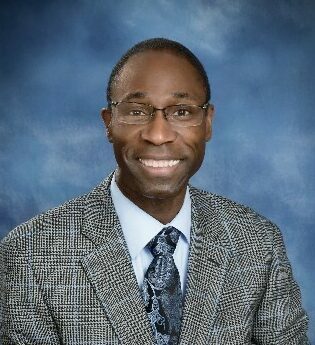
Delegates gear up for November Jurisdictional Conference
By Jessica Brodie
This fall, large-scale denominational gatherings will resume in-person for the first time since the COVID-19 pandemic. Jurisdictional conferences will be held across the United States Nov. 2-5, with the Southeastern Jurisdiction’s conference slated for Nov. 2-4 at Lake Junaluska, North Carolina.
Its primary purpose will be to elect episcopal nominees and set the scope of missions and ministries for the jurisdiction.
South Carolina’s the Rev. Ken Nelson is among the 10 episcopal nominees up for consideration (see full list below). As South Carolina’s episcopal nominee, endorsed unanimously by the delegation and elected as nominee at the last annual conference session in June, Nelson serves as co-chair with Jackie Jenkins of the South Carolina delegation to SEJ, as well as conference secretary and Orangeburg District superintendent for the South Carolina Conference of The United Methodist Church.
In addition to electing new bishops, the lay and clergy delegates from each conference in the SEJ (32 from South Carolina) will also need to decide how many bishops they plan to elect.
“That’s one of the first items of business,” Nelson told the Advocate. “How many bishops can we afford, practically—five or three? How many are we electing?”
The Committee on Episcopacy will bring forth a recommendation to the body as to what they believe is an appropriate number, and the body will vote on that matter along with the actual nominees themselves.
Voting will continue until the session adjourns, with a consecration ceremony tentatively scheduled for the morning of Friday, Nov. 4.
Long-awaited gathering
This session will be the first time the jurisdiction has gathered in-person since the last regular SEJ Conference, held July 13-15, 2016. At that conference, jurisdiction made history, electing the Rev. Sharma Lewis as its first African-American female bishop. Four other new bishops were elected at that session, with South Carolina’s then episcopal nominee Dr. Tim McClendon narrowly missing election. Also in 2016, South Carolina Resident Bishop L. Jonathan Holston, elected in 2012 and assigned then to South Carolina, was reassigned to South Carolina another four years.
However, because of the pandemic, those four years have been extended.
Now, even though jurisdictional conferences historically are held after General Conference, this year’s jurisdictional conferences will be held even though General Conference will not gather until 2024 (date and location not yet released). The UMC Judicial Council, the denomination’s top court, ruled that jurisdictional conferences can proceed so the church can elect and assign new bishops.
That’s important for the Southeastern Jurisdiction, as four bishops have retired with no new bishops elected to take their place, and a fifth (Bishop James Swanson) plans to retire at the end of December. This has meant four annual conferences are currently being covered by bishops serving in more than one location: Bishop Ken Carter serves both the Florida and Western North Carolina conferences; Bishop Leonard Fairley serves the Kentucky, Red Bird Missionary and North Carolina conferences; Bishop David Graves serves the Alabama-West Florida and South Georgia conferences; and Bishop Debra Wallace-Padgett serves the North Alabama and Holston conferences.
Other conferences in the SEJ are the North Georgia Conference (Bishop Sue Haupert-Johnson), South Carolina Conference (Bishop Holston), Virginia Conference (Bishop Sharma Lewis), Tennessee-Western Kentucky Conference (Bishop Bill McAlilly) and Mississippi Conference (Bishop Swanson).
Nelson’s why

In addition to what is slated for the SEJ Conference, the Advocate also had a conversation with Nelson about why he has agreed to offer himself as the delegation’s nominee, particularly given all the anxieties existing in the UMC right now, from frustration about General Conference postponements to news about churches beginning to disaffiliate from the UMC amid disagreements about human sexuality and other issues.
Nelson said that moments like this often force us to face our fears head-on and take action, and he feels he has the ability to serve as a “bridge builder” between where we have been as a church and where are called to be.
“We live in a world and denomination that is utterly broken, and we know it’s too broken to fix ourselves, but to me, the good news is God has not left the world or the church alone, and I suspect God is not done with you or me either.”
Nelson believes God has a vision of a renewed and redeemed world that one day will be reality.
“The way things are is not the way things have to be,” Nelson said. “I feel called to help our church move into a future that is yet unknown, and I’m not afraid of that. I think we are in an opportune moment.”
Nelson said a statement by the late Corrie ten Boom has shaped much of his thinking on this: “Never be afraid to trust an unknown future to a known God.”
“That for me has been a point of resilience for me, something I’ve resonated with: Whatever the future holds, it’s the same God holding the future, and our mission hasn’t changed. Our call to be in mission and ministry hasn’t changed.”
He said he personally cannot imagine being part of any other denomination besides United Methodist, and that this conference and denomination quite literally shaped and formed him into the person he is today. Nelson grew up at Epworth Children’s Home, a ministry founded by the UMC, and has spent his career as a United Methodist pastor. Ordained a deacon in 1993 and as an elder in 1995, he served 12 years at four UMCSC churches (St. Mark-Mount Zion; St. John’s UMC, Aiken; Centenary-Kingsville; and Silver Hill Memorial, Spartanburg) before becoming a congregational specialist in 2007 and then director of Clergy Services in 2014. Today he is conference secretary and superintendent of the Orangeburg District of the UMCSC.
“This is a story of what has God been doing in the church and in my life,” Nelson said, noting he is extremely grateful to the people of South Carolina. “I’m living proof that when the church focuses on missions and ministries, we have the ability to change lives.”
Ten episcopal nominees
In addition to Nelson, the South Carolina Conference delegation nominee, there are nine other episcopal nominees up for vote at the Nov. 2-4 conference:
Dr. Iosmar Alvarez (Kentucky Conference delegation nominee) is a Cuban-American pastor and superintendent of the Lexington District in the Kentucky Conference;
The Rev. Sharon G Austin (Florida Conference delegation nominee) is a longtime pastor in the UMC who has served as director of Connectional and Justice Ministries in the Florida Conference since 2013;
The Rev. Tom Berlin (Virginia Conference delegation nominee) was ordained in 1988 and has served as lead pastor at Floris UMC, Herndon, Virginia, since 1997. An author and speaker, he also served on the Mediation Team for the Protocol of Grace through Separation and was part of the Commission on a Way Forward;
The Rev. Sharon Bowers (Holston Black Methodists for Church Renewal nominee) is also the Committee on the Status and Role of Women’s nominee. She currently serves as executive director and lead pastor at the University of Tennessee Knoxville Wesley Foundation;
The Rev. Fred S. Britton (Mississippi Conference delegation nominee) is a lifelong United Methodist who serves as superintendent for the Tupelo District of the Mississippi Conference. Ordained an elder in 1985, he has been serving local churches since 1983;
The Rev. Amy Coles (Western North Carolina Conference delegation nominee) has served local churches since 1992 and served as a district superintendent for three districts in Western North Carolina from 2009-2015. In 2015, she became assistant to the bishop. She also is an active participant with the denomination’s Connectional Table;
The Rev. Edith Gleaves (North Carolina Conference delegation nominee) has 37 years of experience on the local, district, conference and global levels of the denomination. In addition to her service as a pastor, she served as superintendent of the Harbor District of the North Carolina Conference. Since 2000, she has served as lead pastor of Ocean View UMC, Oak Island;
The Rev. Connie Shelton (SEJ Clergywomen nominee) is a former communicator who has spent decades as a pastor in the UMC before first becoming director of Connectional Ministries and Communications for the Mississippi Annual Conference in 2013 and then superintendent of the East Jackson District in 2015; and
Dr. Byron Thomas (North Georgia Conference delegation nominee) is a veteran of the United States Air Force who served as senior pastor of Ben Hill UMC in Atlanta from 2013-2021, when he was appointed as superintendent of the Central South District in the North Georgia Conference.
SEJ delegates
The 16 Jurisdictional clergy delegates (elected at the 2019 Annual Conference) are the Rev. Ken Nelson, Dr. Robin Dease, the Rev. Keith Hunter, the Rev. Susan Leonard, the Rev. Emily Sutton, the Rev. Will Malambri, the Rev. Tiffany Knowlin, the Rev. Karen Jones, the Rev. Tim Rogers, the Rev. Cathy Mitchell, the Rev. Fran Elrod, the Rev. Connie Barnes, the Rev. Mary Teasley, the Rev. Kathryn Hunter, the Rev. Elizabeth Murray and Dr. Stephen Love (alternate the Rev. Sara White).
The 16 Jurisdictional lay delegates are Jacqueline Jenkins, James Salley, Michael Cheatham, Herman Lightsey, Chris Lynch, Martha Fridy Thompson, David Braddon, Emily Evans, Betty Void, David Salter, Valerie Brooks-Madden, Marlene Spencer, Jennifer Price, Tony Watson, Lou Jordan and Doug Coffeen (alternates Marvin Horton and Vicki McCartha).
More information
A draft agenda provided to the Advocate by SEJ Secretary Anne Travis notes that bishops will begin arriving at Lake Junaluska Oct 30, with meetings and other preparation continuing until Nov. 1. Heads of Delegation are scheduled as of now to meet Nov. 1 at 12:45 to receive credentials and seating information, and round robin sessions with episcopal nominees are currently scheduled to begin at 1:30 p.m. Nov. 1.
Opening worship is expected to begin at 9 a.m. Nov. 2 in Stuart Auditorium, with Bishop James E. Swanson Sr. preaching and Bishop Debra Wallace-Padgett as celebrant. Business is slated to begin at 10:30, with balloting and other business until the evening of Nov. 3, when episcopal assignments will be announced and area receptions held.
The conference is expected to close with consecration of new bishops Nov. 4.
More information on the SEJ Conference, including a schedule, final agenda, housing information and more, will be available at http://sejumc.org.